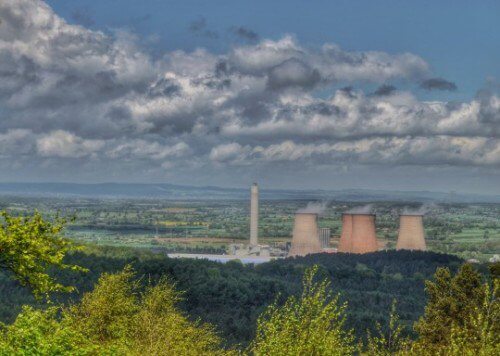Ricochet is the best place on the internet to discuss the issues of the day, either through commenting on posts or writing your own for our active and dynamic community in a fully moderated environment. In addition, the Ricochet Audio Network offers over 50 original podcasts with new episodes released every day.
 On Climate Change and Nuclear Power, Democrats May Not Be the Party of Science
On Climate Change and Nuclear Power, Democrats May Not Be the Party of Science
 Eduardo Porter in the New York Times:
Eduardo Porter in the New York Times:
And yet even as progressive environmentalists wring their hands at the G.O.P.’s climate change denial, there are biases on the left that stray just as far from the scientific consensus. “The left is turning anti-science,” Marc Andreessen, the creator of Netscape who as a venture capitalist has become one of the most prominent thinkers of Silicon Valley, told me not long ago.
He was reflecting broadly about science and technology. His concerns ranged from liberals’ fear of genetically modified organisms to their mistrust of technology’s displacement of workers in some industries. “San Francisco is an interesting case,” he noted. “The left has become reactionary.”
Still, liberal biases may be most dangerous in the context of climate change, the most significant scientific and technological challenge of our time. For starters, they stand against the only technology with an established track record of generating electricity at scale while emitting virtually no greenhouse gases: nuclear power.
Only 35 percent of Democrats, compared with 60 percent of Republicans, favor building more nuclear power plants, according to a poll by the Pew Research Center. It is the G.O.P. that is closer to the scientific consensus. According to a separate Pew poll of members of the American Association for the Advancement of Science, 65 percent of scientists want more nuclear power too.
Interesting that Andreessen is quoted. While nuclear power may not seem like an obvious venture for capital investment, there is interest in Silicon Valley. And here is VCer Peter Thiel on this issue:
While politicians prepare a grand bargain on emissions limits that future politicians are unlikely to obey, a new generation of American nuclear scientists has produced designs for better reactors. Crucially, these new designs may finally overcome the most fundamental obstacle to the success of nuclear power: high cost. Designs using molten salt, alternative fuels and small modular reactors have all attracted interest not just from academics but also from entrepreneurs and venture capitalists like me ready to put money behind nuclear power. However, none of these new designs can benefit the real world without a path to regulatory approval, and today’s regulations are tailored for traditional reactors, making it almost impossible to commercialize new ones.
While Porter does not mention it, I recently heard a novel — at least to me — bit of anti-nuclear/pro-renewables reasoning: We need to use that uranium for powering future spacecraft, and we shouldn’t waste it on power generation here on Earth.
Published in Culture, Science & Technology



Safety concerns with respect to any energy source will never be addressed to everyone’s satisfaction.
I overstated, I meant everyone bargaining for new legislation to make nuclear power easier and cheaper to implement from a regulatory and legislative perspective.
“We need to use that uranium for powering future spacecraft, and we shouldn’t waste it on power generation here on Earth.”
I’m confused. Does the left want us to “save the planet” or leave it?
When progressives say they are “of science” keep in mind that, historically, those “sciences” have included eugenics and phrenology.
Josh, you are giving folks a free tutorial in how to debate graciously on Ricochet. Thanks!
The left only supports “Science” under certain circumstances:
The nuclear power industry in the US is safety-obsessed. Not only are they highly regulated, but the industry has its own vigorous regulating body. Petroleum refineries and natural gas processing plants could use some of that emphasis on safety, maybe then they would catch on fire less often.
Nuclear technology is advancing quite rapidly, but the actual plants are running on 60s and 70s tech, since the cost of nuclear power is almost entirely driven by the capital investment (fuel costs are tiny, relatively speaking)
Is it startup cost, regulation, or both that prevent nuclear from expanding in the US, in your opinion?
Regulation is probably the biggest hindrance to new reactor design development. It is incredibly hard to bring a new design to market, and this is keeping small reactor designs or the various flavors of new reactor like gas-cooled high temperature reactors or molten salt thorium reactors or fast breeders out of the market.
Startup costs are slowing down the production of conventional approved reactors. The reactors are mostly derivatives of the the Navy nuclear power reactors, and are built for maximum economy of scale.
Having presidential or congressional pressure on the NRC could get new designs approved more rapidly, but everyone will be ready to jump if they is a problem with the reactor.